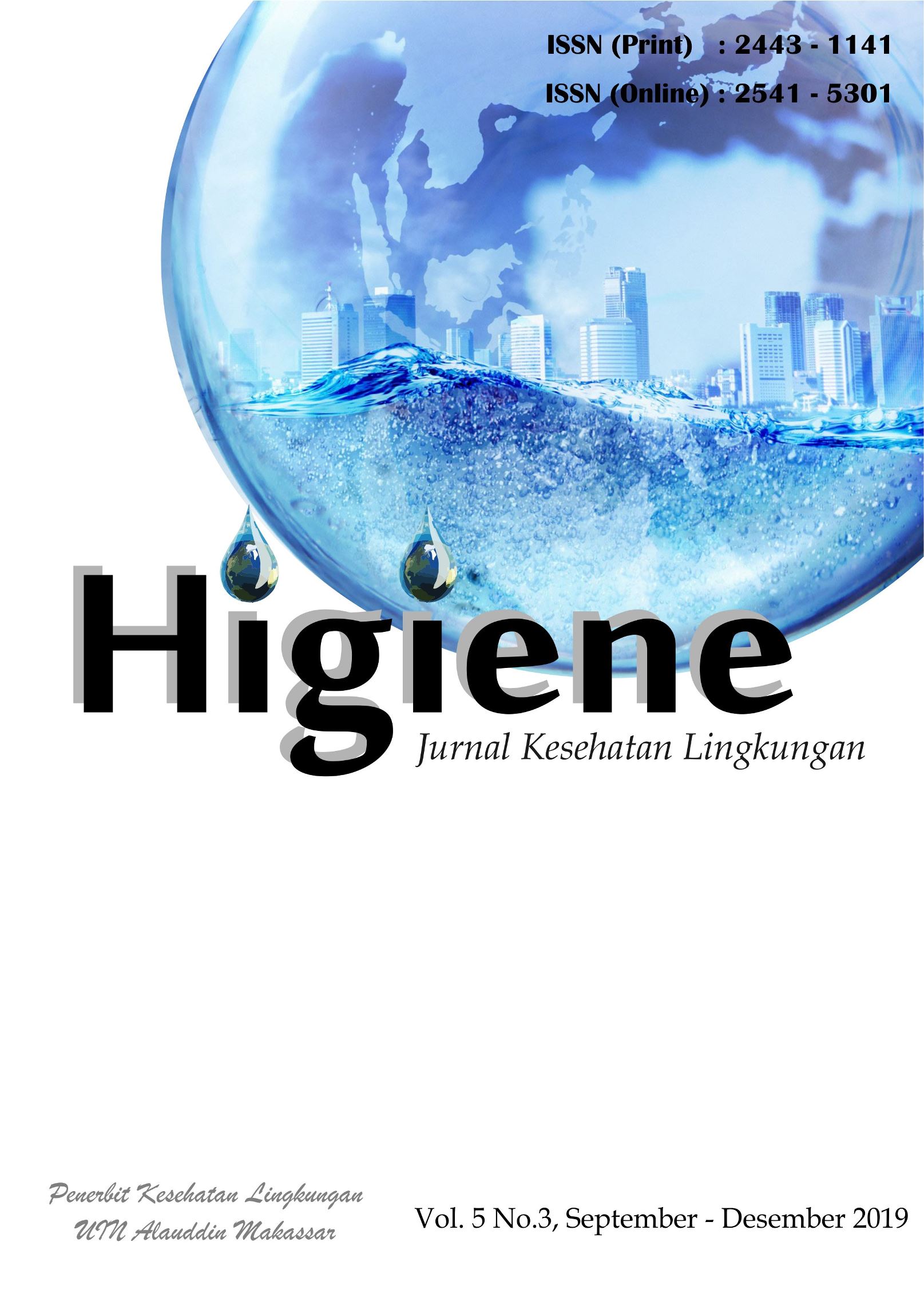Participatory Based Waste Management In The Faculty Of Medicine And Health Sciences Of Alauddin State Islamic University Of Makassar
Abstrak
Waste management has become a pressing issue in many major cities in the world, including in Indonesia. As the health aspect of a faculty is crucial and impacts each member, this research aims to conduct and analysis on the participatory waste management in Faculty of Medicine and Health Sciences of Alauddin State Islamic University of Makassar by addressing the knowledge, attitude and behaviour of students regarding waste management. It uses qualitative method and community-based research (CBR) approach to understand the issue. The samples consist of 150 respondents who are selected by using random sampling technique. The research findings suggest that respondents’ average score on waste management knowledge improves after receiving an intervention, from 77.26 to 86.30. Next, respondents’ average score on their attitude toward waste management also improves after receiving an intervention, from 47.64 to 69.50. They exhibit appropriate response to proper waste management. The findings indicate that students’ knowledge influences their attitude toward waste management issue. The better their knowledge on the issue is the better their displayed attitude becomes, as indicated by the increase in respondents’ average score from 17.25 to 21.84. The significance values of 0.000 p=(<0,05) suggests that there is a significant difference in respondents’ knowledge, attitude and behaviour after an intervention. Thus, this research encourages students and other faculty members to improve their participation in waste management program.
Keywords: knowledge, attitude and behavior, management, waste, environment
Referensi
A, I. (2013). Gambaran Partisipasi Masyarakat dalam Pengelolaan Sampah pada Bank Sampah UKM Mandiri di RW 002 Kelurahan Tamamaung, Kecamatan Panakkukang, Kota Makassar. Fakultas Kedokteran dan Ilmu Kesehatan di Uin alauddin Makassar.1-20
Data Sensus Penduduk Indonesia. (2016). Jumlah Penduduk Kota Makassar. Makassar : Bps Kota Makassar
Dinas Pertamanan dan Kota Makassar. (2016). Jumlah Timbunan dan Volume Sampah. Makassar : BPS Kota Makassar
Kamal, F. (2009). Hubungan antara Tingkat Pengetahuan dan Sikap Ibu Rumah Tangga tentang Pengelolaan Sampah dengan Perilaku Pembuangan Sampah pada Masyarakat Sekitar Sungai Beringin Di RW 07 Kelurahan Wonosari Kecamatan Ngaliyan Kota Semarang Tahun 2009. Fakultas Ilmu Keolaragaan Universitas Negeri Semarang.7-20
Lestari, S. (2016). Perilaku Pedagang dalam Membuang Sampah (Studi Kawasan Bandar Jaya Plaza Kelurahan Bandar Jaya Timur Kecamatan Tanggi Besar, Kabupaten Lampung Tengah. Fakultas Ilmu Sosial dan Ilmu Politik Universitas Lampung. 30-45
Notoatmodjo, Soekidjo. (2003). Pendidikan dan Ilmu Perilaku. Jakarta: Renika Cipta.
Permen PU No. 21/PRT/M2006. Peraturan Pemerintah. 2006
Risnawati. (2017). Pengelolaan Sampah Di Universitas Islam Negeri Alauddinn Makassar. Skripsi Program Studi Kesehatan Masyarakat Fakultas Kedokteran dan Ilmu Kesehatan di Uin alauddin Makassar. 1-4
Undang-Undang Nomor 18 Tahun 2008. tentang Pengelolaan Sampah.
Undang-Undang Republik Indonesia No. 36 Tahun 2009 . tentang Kesehatan.
##submission.copyrightStatement##
##submission.license.cc.by4.footer##Informasi Hak Cipta
KEBIJAKAN HIGIENE : JURNAL KESEHATAN LINGKUNGAN (AKSES TERBUKA)
Syarat yang harus dipenuhi oleh Penulis sebagai berikut:
- Penulis menyimpan hak cipta dan memberikan jurnal hak penerbitan pertama naskah secara simultan dengan lisensi di bawah Creative Commons Attribution License yang mengizinkan orang lain untuk berbagi pekerjaan dengan sebuah pernyataan kepenulisan pekerjaan dan penerbitan awal di jurnal ini.
- Penulis bisa memasukkan ke dalam penyusunan kontraktual tambahan terpisah untuk distribusi non ekslusif versi kaya terbitan jurnal (contoh: mempostingnya ke repositori institusional atau menerbitkannya dalam sebuah buku), dengan pengakuan penerbitan awalnya di jurnal ini.
- Penulis diizinkan dan didorong untuk mem-posting karya mereka online (contoh: di repositori institusional atau di website mereka) sebelum dan selama proses penyerahan, karena dapat mengarahkan ke pertukaran produktif, seperti halnya sitiran yang lebih awal dan lebih hebat dari karya yang diterbitkan. (Lihat Efek Akses Terbuka).

